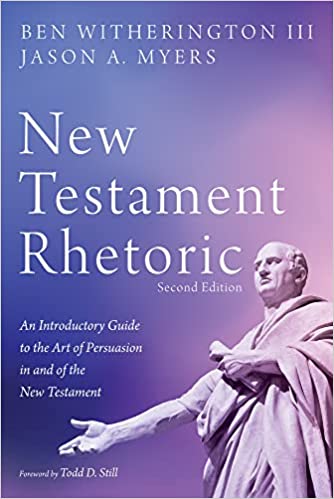Dionysius of Halicarnassus (i.e. Bodrum) arrived in Rome in A.D. 30 sick and tired of Asiatic rhetoric as propagated by his fellow orators in the province of Asia. Unlike some Greek Dionysius saw in Romans a more appropriate and sober and disciplined style of rhetoric. Dionysius is what one could call an armchair rhetorician by which I mean a person who did not himself declaim but taught many Romans to do so, and he wrote treatises about the art of persuasion. At the same time, Dionysius was not a one trick pony, he was also an historian. “The two aspects of Dionysius’ literary activity were complementary, since he regarded his historical work as an exemplification of his rhetorical theory.” (Bowersock, p. 84 in the Cambridge History of Classical Literature Vol. I Part 4). Dionysius gave himself to a detailed study of both the Greek orators and the Greek historians. In Dionysius’s view the ancient sober rhetoric of Aristotle and others had been revived by the Romans, and the new Rhetoric of the Sophists should be ignored and allowed to pass into obscurity. He thanks the Romans for helping to make this happen. He says in his Of Ancient Oration 2-3: “The ancient sober rhetoric has been restored to her former rightful place of honor, while the brainless new rhetoric has been restrained from. enjoying a fame which it does not deserve and from living in luxury on the fruits of another’s labors. And this is perhaps not the only reason for praising the present age and the men who guide its culture….I think that the cause and origin of this great revolution has been the conquest of the world by Rome…And since this great revolution has taken place in so short a time, I should not be surprised if that craze for a silly style of oratory fails to survive another single generation.” This deserves a wow. Rome’s wars saved the world from Asiatic rhetoric! Of course he was wrong, not least because as the Empire and dictatorial rule rose in power, flattery and flamboyance, especially in praise of rulers was hardly going to disappear. To the contrary, it only ramped up. Safe rhetoric gave increasing attention to style, to beauty in discourse, with the purpose of the rhetoric to please the audience, rather than mainly to persuade. It is not surprising that in this period manuals on style became to crop up, like the anonymous volume, ‘On the Sublime’ or Demetrius’ On Style.
All along, one of the main concerns of Greek rhetoric was ‘propriety’. One had to choose a proper subject, one needed to use proper arguments, one need to form proper sentences etc. and this rhetorical concern was applied to the writing of history as well. For example, polymath Plutarch a reader and writer on a vast range of subjects censures Thucydides for choose a poor, nay improper subject for his history. The great rhetorician of the era, Dionysius of Halicarnassus is even more critical of Thucydides for the same reasons. Plutarch also has a rhetorical approach to bioi that is biographies. The focus is on revealing the character of the person in question, and more particularly things that reveal his virtues or vices. In other words, the focus is not on historic events, but on whatever material reveals whether the person was a scoundrel or a moral athlete. Even the slightest turn of phrase or jest could better reveal the character (not just the personality but the moral character) of a person, and that is what the biographer should focus on. G.W Bowersock in The Hellenistic Period and the Empire, helpfully points out, when on rare occasion, Plutarch chose a bad Greek to write about (say Demetrius) he would pick a bad Roman (e.g. Antony) to pair him with, because his goal was not entertainment or amusement but “to illuminate morality by its opposite, and…to emphasize that various features of mankind are not confined to one nation” (p. 108). But where was rhetoric headed as the Empire kept expanding, and autocracy kept expanding with it? In our next post we will say more.













